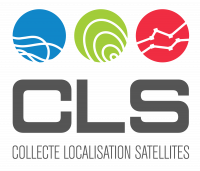Road transport plays a major role in global warming: it is responsible for more than 25% of greenhouse gas emissions.
By 2050, the transport sector will account for around 40% of CO2 emissions and freight is expected to become the main source of CO2 emissions from land transport.
It is therefore essential to find alternatives. One such alternative is to optimize and effectively reduce fuel consumption and related CO2 emissions.
The LIFE ECOTRAVID project aims to reduce fuel consumption of trucks and related CO2 emissions by 5-10%.
It demonstrates the effectiveness of a virtual driving simulator, based on the Virtual Measurement Campaign (VMC) software, which will be integrated into the Trailermatics decision support platform.
It provides the optimal route and configuration of trucks/trailers for a specific transport mission, balancing costs and fuel consumption in the best possible way.
The project is co-funded by the LIFE program, the European Union’s financing instrument for environment and climate action created in 1992.
The objective: The reduction of fuel consumption and related CO2 emissions
In a context where the protection of the environment is becoming a real necessity, the ECOTRAVID project is dedicated to reducing fuel consumption of heavy goods vehicles by:
-
-
- Demonstrating the effectiveness of the innovative Virtual Drive Engine in reducing fuel consumption and related CO2 emissions using real world data that precisely describe the vehicles’ environment, e.g. roads, topography, traffic, climate, etc.
- Developing technology to achieve reasonable and practical fuel consumption and emission values.
- Proposing detailed calculations of energy demands for specific transport missions, including analysis of different losses (air, rolling and slope resistance).
- Analyzing and making decisions: a new set of transportation planning tools that provides alternative routing options that are optimal for fuel consumption and GHG emissions. Key planning information will be provided to drivers to enable them to make decisions in real time.
-
The LIFE ECOTRAVID project consortium is composed of Collecte Localisation Satellites (CLS), the coordinating beneficiary, and two associated beneficiaries, the Fraunhofer Institute for Industrial Mathematics (ITWM) and SAMAT AQUITAINE.











